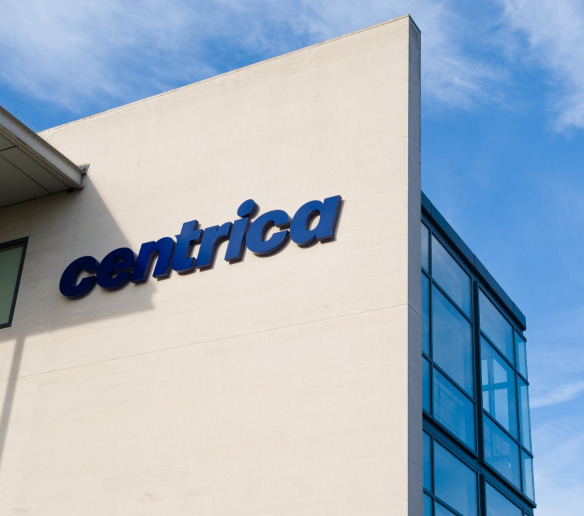Centrica’s adjusted operating profit has fallen by 14% in the first half of 2020, with the beleaguered supplier pointing to the impact of COVID-19.
This fall of £56 million compared to the same period in 2019 can largely be attributed to the pandemic together with low commodity prices and warm weather, although the company continued that some of the impact had been mitigated by improved underlying performance.
Adjusted basic earnings per share were up slightly to 2.5p, which reflects a fall in its adjusted effective tax rate from 47% to 35%.
The company’s statutory operating loss was down to £135 million from £446 million in the first half of 2019. This was due to Net exceptional items included in statutory operating loss jumping from £346 million to £1,036 million, a 199% change. This includes restructuring costs of £251 million, and impairments of E&P and power assets which together total £785 million; these also reflect the fall in commodity prices.
Because of the impact of COVID-19, Centrica – with owns UK Big Six supplier British Gas – is not declaring a new interim dividend or any specific full year guidance.
This follows the company cancelling its dividend in April as well, due to the impact of the pandemic. It also paused the sale of Spirit Energy at that time.
Chris O’Shea, Group chief executive, said the company had delivered a resilient performance against “the unprecedented backdrop of the COVID-19 crisis during the first half of the year”.
“Our mission now is to turn around the Company by putting customers at the heart of everything we do and creating a simpler, leaner, more modern and more sustainable company. The sale of Direct Energy is a fundamental step towards this, and although we have a lot more to do, we have the people, the brands and the market positions to deliver a successful turnaround.”
Centrica agrees to sell North American arm
Along with today’s results, Centrica has announced that it is selling its North American energy supply, services and trading business, Direct Energy, to NRG Energy. It has agreed to sell the business for $3.625 billion in cash (£2.85 billion) on a debt free, cash free basis, and is expected to reduce the group’s net debt significantly.
The sale will allow Centrica to focus on the UK and Ireland, the company said, where it has a leading market position.
“Alongside our recently announced organisational restructure, which puts the customer at the heart of everything we do and accelerates the delivery of targeted cost savings, this transaction is a fundamental step in the turnaround of Centrica and will leave us well placed to deliver for both customers and shareholders,” continued O’Shea.
The sale is in line with the company’s plan to become a simpler, leaner business he added, a goal announced in June and which saw 5,000 redundancies.
“The transaction provides Centrica with an opportunity to realise significant value for our shareholders at an attractive valuation,” said O’Shea.
“Combined with our focus on completing our intended exits from Spirit Energy and nuclear at the appropriate time, this is expected to lead to a more predictable and high-quality earnings stream moving forward.”
Centrica has been struggling for a number of years, announcing a £849 million loss in February for 2019. The company’s 2018 financial results sent its share price tumbling to a 20 year low, after it confirmed that the incoming price cap would create challenges for the company. While the previous annual financial statement led to the company cutting over 4,000 jobs when it was released in February 2018, due to the company’s “weak” performance.
In March, Centrica’s board underwent a major shake-up, and O’Shea took over as CEO, taking over from Iain Conn, who had announced he would leave the company over its poor performance in July 2019.





